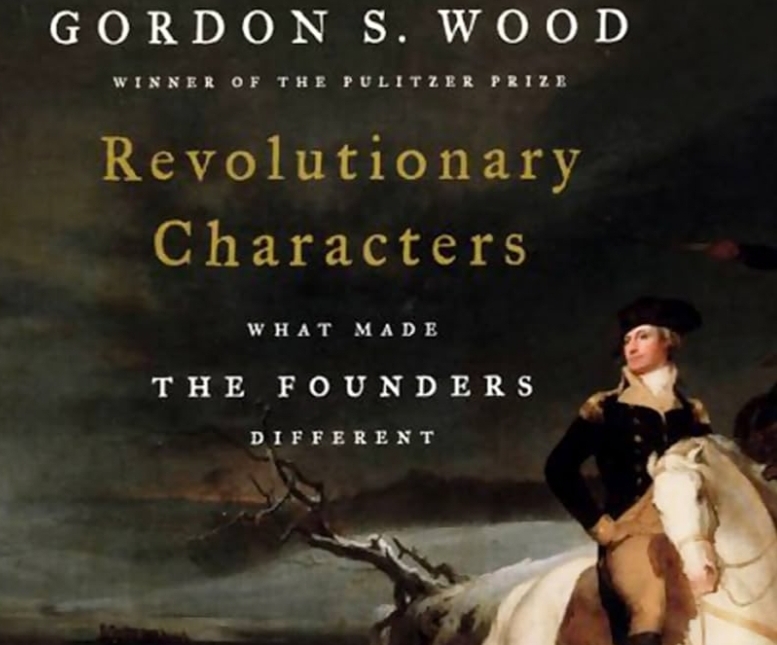Gordon S. Wood’s Revolutionary Characters: What Made the Founders Different offers a series of biographical essays that explore the unique qualities and intellectual depth of the Founding Fathers of the United States. Wood argues that these leaders—George Washington, Thomas Jefferson, John Adams, James Madison, Benjamin Franklin, Alexander Hamilton, Thomas Paine, and Aaron Burr—were part of a unique generation that rose to prominence during a critical period in history, shaping the birth of the nation and the principles upon which it was founded.
Key Themes and Concepts:
The Exceptionalism of the Founders: Wood posits that what made the Founders exceptional was their commitment to public service and their intellectual engagement with the Enlightenment ideals that fueled the American Revolution. These men were deeply influenced by the ideas of liberty, republicanism, and virtue, and they sought to create a new form of government based on these principles. Wood explains that the Founders were not just political leaders but also philosophers and thinkers who were intensely aware of the historical significance of their actions.
The Idea of Virtue: A central theme in the book is the Founders’ belief in the importance of virtue in public life. For the Founders, virtue meant placing the public good above personal interests. This concept of republican virtue was essential to their vision of a self-governing republic. Wood highlights how figures like Washington and Jefferson exemplified this ideal in their personal conduct and political careers, believing that the success of the new nation depended on the character of its leaders.
The Diversity of Thought Among the Founders: Although the Founders shared common ideals, Wood emphasizes the diversity of their political and philosophical views. He explores the differences between figures like Hamilton, who favored a strong central government, and Jefferson, who championed states’ rights and a more decentralized republic. Wood examines how these differing visions of the nation’s future created tensions that persisted throughout the early years of the republic and continue to shape American politics today.
George Washington’s Unique Leadership: Wood devotes a significant portion of the book to George Washington, whom he regards as the most extraordinary of the Founders. Washington’s character, particularly his selflessness and commitment to republican ideals, set him apart from other leaders. Wood discusses how Washington’s decision to voluntarily relinquish power after two terms as president was a profound statement of his commitment to republican principles and a defining moment in American history.
Thomas Jefferson and the Dilemma of Slavery: In his essay on Thomas Jefferson, Wood explores the contradictions between Jefferson’s advocacy for liberty and his ownership of slaves. Jefferson’s philosophical commitment to equality and his personal life stand in stark contrast, making him one of the most complex figures of the Revolution. Wood discusses how Jefferson’s ideas about freedom and equality influenced American political thought, despite his failure to address the institution of slavery during his lifetime.
Alexander Hamilton’s Vision of America: Wood presents Alexander Hamilton as the Founding Father with the most modern vision of America. Hamilton’s belief in a strong national government, a robust financial system, and an industrial economy set him apart from other Founders who favored a more agrarian society. Wood argues that while Hamilton’s vision was controversial at the time, it ultimately laid the foundation for the modern American state.
The Fall of Aaron Burr: One of the more tragic figures in the book is Aaron Burr, whose ambition and lack of republican virtue ultimately led to his downfall. Wood portrays Burr as a talented but morally ambiguous figure whose pursuit of personal power clashed with the ideals of the Revolution. Burr’s story serves as a cautionary tale about the dangers of ambition unchecked by a commitment to the public good.
The Legacy of the Founders: Wood concludes by reflecting on the legacy of the Founders and what made them different from later generations of American leaders. He argues that the Founders were part of a unique moment in history when intellectual rigor, personal virtue, and public service were deeply intertwined. As America moved into the 19th century, politics became more democratic and populist, and the moral and intellectual leadership of figures like Washington and Adams became less common.
Conclusion:
Revolutionary Characters: What Made the Founders Different offers a nuanced and insightful portrait of the Founding Fathers, highlighting both their individual complexities and their collective impact on the formation of the United States. Gordon S. Wood’s biographical approach allows readers to see the personal qualities that set these men apart and made them capable of leading a successful revolution and founding a new nation. The book underscores the importance of character, virtue, and intellectual engagement in the founding of the American republic, and it invites readers to reflect on how these qualities are needed in leadership today.







